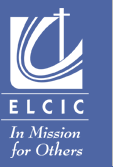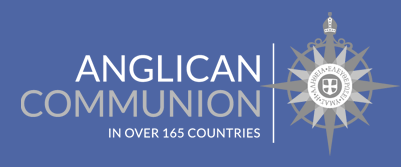Subject: Canadian Council of Churches Anniversary
Moved By: The Rt. Rev. Michael Oulton
Seconded By: The Ven. Valerie Kerr
Be it resolved that this General Synod:
In a spirit of gratitude for the Seventy-Fifth Anniversary of the formation of the Canadian Council of Churches, offer congratulations to the President and Executive of the Canadian Council of Churches, and recommit the Anglican Church of Canada to our membership and full participation in the life and witness of the Council.
Source: Faith, Worship, and Ministry Coordinating Committee
Submitted By: Faith, Worship, and Ministry Coordinating Committee
Does this motion contain within it any financial implications? Yes No
If yes, has the General Synod Expenditures Committee considered the implications? Yes No
EXPLANATORY NOTE/BACKGROUND
From the CCC Constitution: The Canadian Council of Churches is a community of churches which confess the Lord Jesus Christ as God and Saviour according to the Scriptures and therefore seek to fulfill together their common calling to the glory of one God, Father, Son and Holy Spirit, and also other churches which affirm the same faith but which do not make doctrinal confessions.
Mission: The Canadian Council of Churches responds to Christ’s call for unity and peace, seeks Christ’s truth with affection for diversity, and acts in love through prayer, dialogue and witness to the gospel.
2019 marks the 75th anniversary of the Canadian Council of Churches.
One of the most significant developments in the 20th century in the experience of Christian churches has been the rise of an ecumenical movement, in which churches seek reconciliation, reunion and restoration of oneness; the hope is to reverse centuries of history marked by separation and withdrawal of churches from one another, a sad history of confronting, competing, and criticizing each other in a bitter rivalry that descended to name-calling, insult and even to internecine warfare. The ecumenical movement sought to change the goals and methods for churches to relate with each other, to seek an appropriate form of unity which would enable both an immediate common Christian work and an eschatological hope for the restoration of the broken unity of Christian believers, “that they may all be one” (John 17:21).
The Canadian Council of Churches is the broadest ecumenical body in Canada, now representing 25 churches of Anglican, Evangelical, Eastern Orthodox and Oriental Orthodox, Protestant, Eastern Catholic and Roman Catholic traditions; together we represent 85% of the Christians in Canada. Some Canadian churches belong instead to the Evangelical Fellowship of Canada, and six churches belong to both. Cooperative work goes on between the two bodies.
The Anglican Church of Canada was one of the founding member Churches of the Canadian Council of Churches in 1944. Anglicanism worldwide even by that time already had played a leadership role in the ecumenical movement’s endeavours in mission, doctrine, social justice, and witness. The founding of the Canadian Council of Churches predated that of the World Council of Churches several years later, and marked a solidifying of formal, conciliar ecumenical organizing for the furtherance of God’s mission and Christian unity in service of that mission.
At present, the Council’s work is carried out through the following groups, all reporting to the Governing Board:
- Commission on Justice and Peace
- Commission on Faith and Witness
- Forum for Intercultural Learning and Leadership
- Week of Prayer for Christian Unity Writing Team
- Faith and Life Sciences Reference Group
- Christian Interfaith Reference Group
- Canadian Ecumenical Anti-Racism Network
- Working Group on Sexual Exploitation in Canada
- Project Ploughshares
Members of the Anglican Church of Canada serve on the Governing Board of the Council, and on each of these working bodies.
PROCEDURE FOR ADOPTION (G)
In the normal course, an ordinary motion must be passed by a majority of the members of General Synod present and voting together. Six members of General Synod may, prior to the question being put, require a vote by Orders, with a majority of each Order being necessary to pass.
If a question passes on a Vote by Orders, any six members (two from each of three different dioceses) may immediately before the next item of business require a vote to be taken by dioceses. A motion passes if a majority (or a tie) of dioceses vote in favour.
Source: Sections 4 and 5 of the Declaration of Principles and sections 18, 19 and 20 of the Rules of Order and Procedure.


